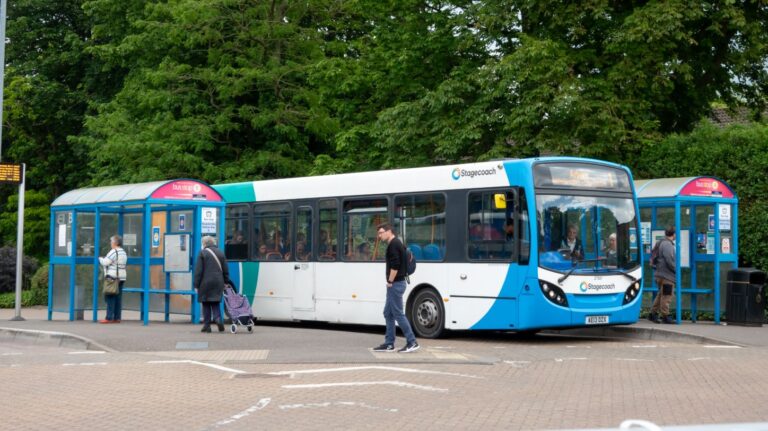Bus passengers in England will now pay up to £3 for single fares after the national cap increased on January 1 from the previous £2 limit.
The UK government had previously announced that the £3 cap will remain in place until the end of 2025, supported by a £150m funding package.
The increase comes as the previous £2 fare cap, introduced to shield passengers from cost-of-living pressures, expired at the end of 2024.
While the new cap aims to maintain affordability compared to standard fares, the rise has sparked criticism from some quarters, with concerns about its impact on regular bus users and low-income communities.
Passengers on longer routes such as Leeds to Scarborough, where standard fares can reach £15, will still see savings of up to 80% under the cap.
However, critics argue that the higher cap could cost frequent travellers hundreds more per year.
The Scottish Sun likened the increase to a “bus tax”, claiming it may place additional financial strain on some households.
Silviya Barrett, director of policy and campaigns at Campaign for Better Transport, said: “This is a significant increase that will be a costly start to 2025 for many people.
“Buses are our most used form of public transport, so they need to be affordable.
“The fare cap has proved popular with passengers and helped boost ridership so the government must now look for a long-term replacement for the scheme from next year to avoid any further rises.”
The government has defended the move, with local transport minister Simon Lightwood stating, “Buses are vital to communities, and this £3 cap ensures fares remain affordable while we continue to invest in reliable services.
“This funding is part of a broader commitment to improve access and opportunity across the country.”
In addition to the fare cap, the government is progressing its Bus Services Bill, which seeks to empower local authorities to establish and manage their own bus networks.
Transport secretary Heidi Alexander has indicated that subsidies will shift focus in 2026 toward improving services in rural areas and for younger passengers.
Meanwhile, local leaders, including Greater Manchester mayor Andy Burnham and West Yorkshire mayor Tracy Brabin, have pledged to maintain fares below £3 within their regions.
With nearly £1bn invested in improving reliability and frequency, the government faces ongoing scrutiny over its efforts to reverse decades of decline in bus service availability.
Subscribe for free to the quarterly print edition of CiTTi Magazine for exclusive insights into the key business issues shaping the future of sustainable urban mobility. Stay ahead of the curve by signing up for the free CiTTi weekly newsletter, delivering sector-leading content straight to your inbox every Friday. For even more updates, follow CiTTi Magazine on X (formerly Twitter) and LinkedIn. LinkedIn followers can also subscribe to Urban Digest — a weekly newsletter curated exclusively for the CiTTi Magazine LinkedIn community.





